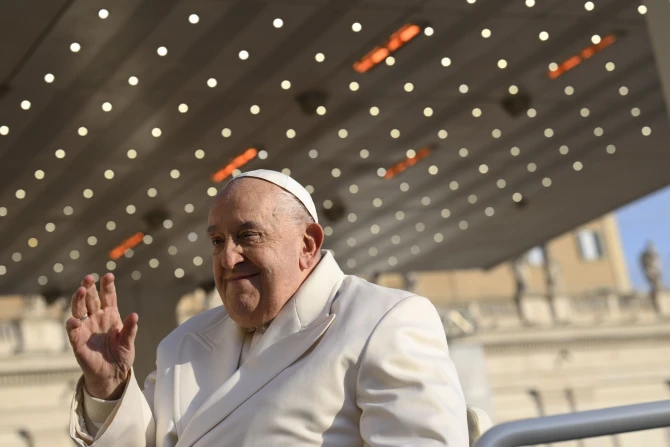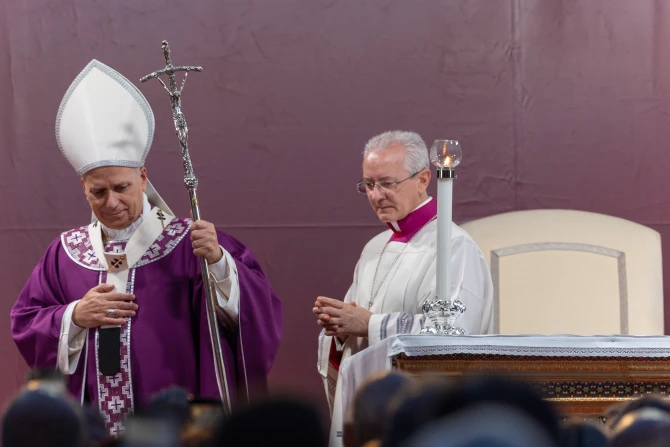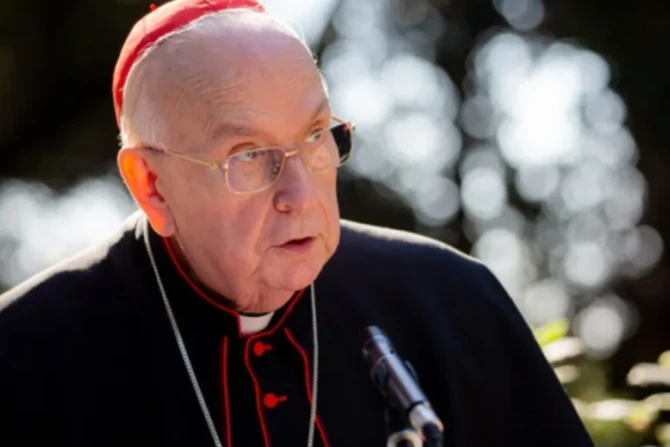The Vatican’s top doctrinal office issued a declaration on the theme of human dignity on Monday that addresses growing concerns such as gender theory, sex changes, surrogacy, and euthanasia in addition to abortion, poverty, human trafficking, and war.
“In the face of so many violations of human dignity that seriously threaten the future of the human family, the Church encourages the promotion of the dignity of every human person, regardless of their physical, mental, cultural, social, and religious characteristics,” reads the Vatican declaration issued by the Dicastery for the Doctrine of the Faith.
The declaration, titled Dignitas Infinita, which means “infinite dignity,” states that the Church highlights these concerns “with hope, confident of the power that flows from the risen Christ, who has fully revealed the integral dignity of every man and woman.”
Abortion, euthanasia, and surrogacy
In the declaration, the dicastery cautions against threats to human dignity that begin at the moment of conception, that exist in the process of procreation, and that threaten humanity toward the end of life.
The declaration cites St. John Paul II’s encyclical Evangelium Vitae on abortion, noting that the pontiff taught that “procured abortion is the deliberate and direct killing, by whatever means it is carried out, of a human being in the initial phase of his or her existence, extending from conception to birth.”
According to Pope Francis’ apostolic exhortation Evangelii Gaudium, also cited in the declaration, preborn children are “the most defenseless and innocent among us” and in the present day, “efforts are made to deny them their human dignity and to do with them whatever one pleases, taking their lives and passing laws preventing anyone from standing in the way of this.”
The declaration also warns that euthanasia and physician-assisted suicide are “swiftly gaining ground” in some parts of the world, which it says is “unique in how it utilizes a mistaken understanding of human dignity to turn the concept of dignity against life itself.”
“Even in its sorrowful state, human life carries a dignity that must always be upheld, that can never be lost, and that calls for unconditional respect,” the declaration states. “Indeed, there are no circumstances under which human life would cease from being dignified and could, as a result, be put to an end.”
The practice of surrogacy is another concern noted by the document, noting that “the immensely worthy child becomes a mere object” in the process.
“Because of this unalienable dignity, the child has the right to have a fully human (and not artificially induced) origin and to receive the gift of a life that manifests both the dignity of the giver and that of the receiver,” the declaration adds.
“Moreover, acknowledging the dignity of the human person also entails recognizing every dimension of the dignity of the conjugal union and of human procreation. Considering this, the legitimate desire to have a child cannot be transformed into a ‘right to a child’ that fails to respect the dignity of that child as the recipient of the gift of life.”
Gender theory and sex changes
As many Western nations continue to promote gender ideology and debate whether minors should be able to access transgender drugs and surgeries, the Vatican states that the ideology “intends to deny the greatest possible difference that exists between living beings: sexual difference.”
The declaration emphasizes that “all attempts to obscure reference to the ineliminable sexual difference between man and woman are to be rejected” and that “only by acknowledging and accepting this difference in reciprocity can each person fully discover themselves, their dignity, and their identity.”
A human body, the Vatican notes, also shares in the dignity of the image of God, and people are called to accept and respect the body as it was created: “the body participates in that dignity as it is endowed with personal meanings, particularly in its sexed condition.”
“Any sex-change intervention, as a rule, risks threatening the unique dignity the person has received from the moment of conception,” the Vatican adds.
To respect human dignity, the declaration also condemns unjust discrimination, aggression, and violence directed toward individuals based on sexual orientation.
“It should be denounced as contrary to human dignity the fact that, in some places, not a few people are imprisoned, tortured, and even deprived of the good of life solely because of their sexual orientation,” the Vatican states.
This article was origanilly published on Catholic News Agency.







